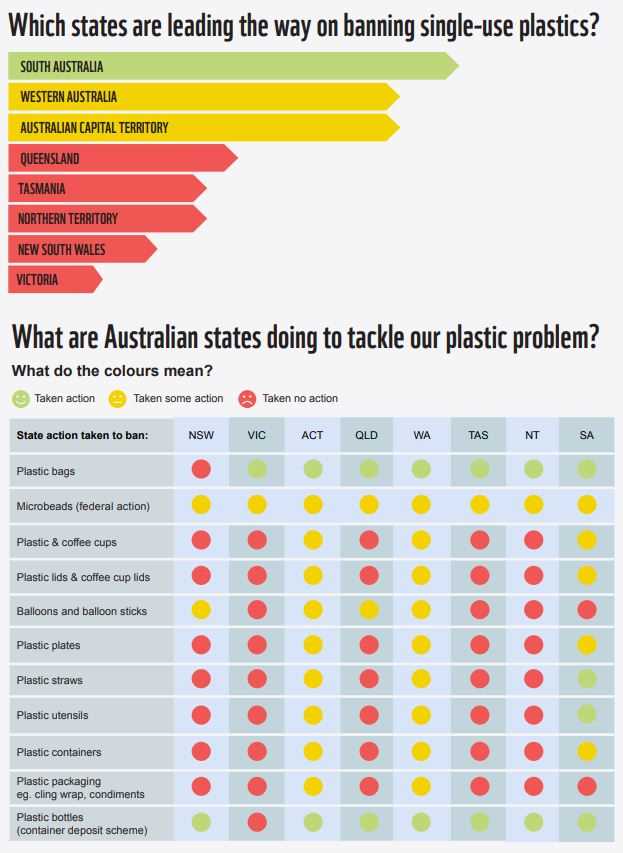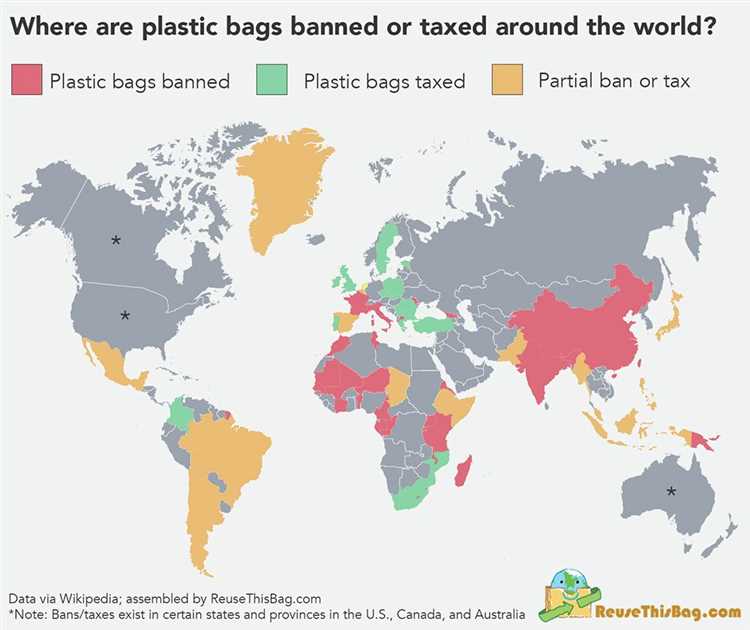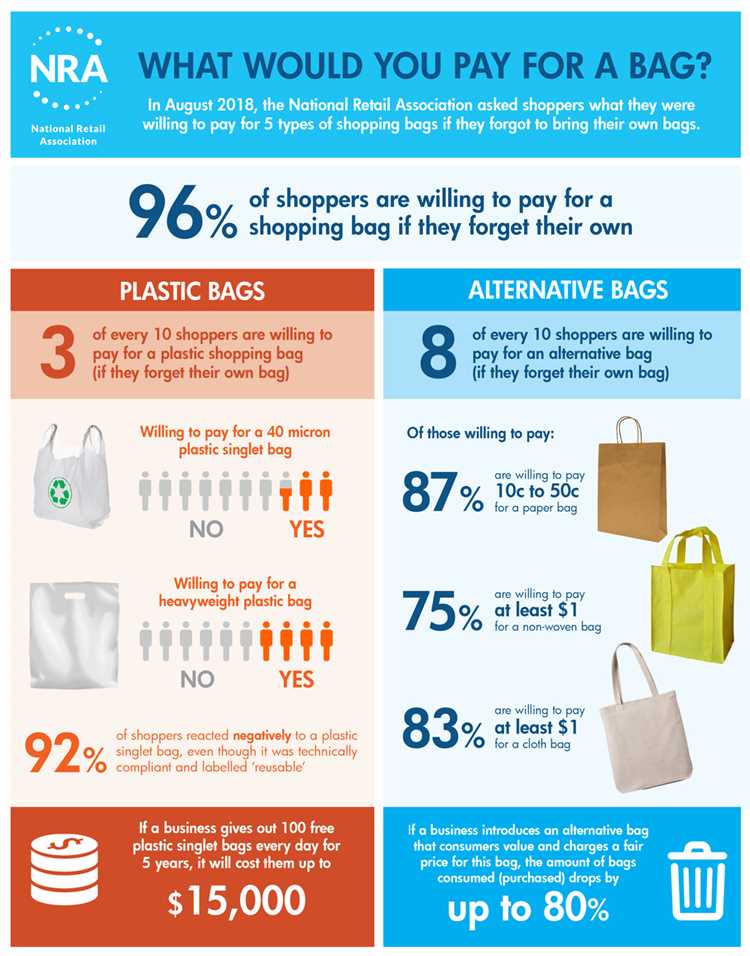
Plastic pollution is a global issue that threatens the environment and marine life. In order to combat this problem, many countries around the world have implemented strict measures to reduce the use of single-use plastic bags. Australia is one such country that has taken a proactive stance in addressing this issue by implementing a nationwide ban on lightweight plastic bags.
The plastic bag ban in Australia was introduced in various stages, starting with South Australia in 2009, followed by the Australian Capital Territory, Northern Territory, and Tasmania. Finally, in 2018, the ban was enforced nationwide, making Australia one of the leading countries in the fight against plastic pollution.
The results of the plastic bag ban in Australia have been highly promising. According to the Australian Bureau of Statistics, the ban has led to a significant reduction in the consumption of plastic bags. In 2017-2018, Australians used approximately 1.5 billion lightweight plastic bags, compared to over 10 billion bags used in 2004. This represents a remarkable 85% decline in plastic bag consumption.
The ban has also had positive effects on the environment. By reducing the use of plastic bags, Australia has significantly reduced the amount of plastic waste that ends up in landfills and the ocean. This has helped to protect marine life, as plastic bags can be mistaken for food by animals, leading to severe consequences such as entanglement and ingestion.
Furthermore, the ban has encouraged a shift towards more sustainable alternatives. Many Australians have embraced reusable bags, such as those made from canvas or other eco-friendly materials. This has created a cultural shift towards more responsible and environmentally-friendly consumer habits, which are crucial in the battle against plastic pollution.
- Impact on Plastic Bag Usage
- Reduction in Plastic Waste
- Positive effects on marine life
- Less strain on landfill sites
- Environmental Benefits
- Consumer Response
- Increased Usage of Reusable Bags
- Shift Towards Paper and Biodegradable Bags
- Adaptation to New Habits
- Support for Further Regulations
- Retailer Feedback
- Increase in reusable bag usage
- Reduction in plastic bag litter
- Challenges in implementation
- Positive customer response
- Government Support
- Policy Implementation
- Education and Awareness Campaigns
- Q&A:
- When did Australia ban single-use plastic bags?
- Why did Australia ban plastic bags?
- How many plastic bags were saved after the ban?
- How much plastic waste reduction has been achieved?
- Do all states and territories in Australia have the plastic bag ban?
- Why was a plastic bag ban introduced in Australia?
Impact on Plastic Bag Usage
The implementation of the plastic bag ban in Australia has had a significant impact on the usage of plastic bags in the country. Prior to the ban, Australians were using an estimated 10 billion plastic bags each year. This had detrimental effects on the environment, including pollution of rivers, oceans, and landfills.
Since the ban was introduced, there has been a dramatic reduction in the use of plastic bags. In the first year alone, an estimated 80% decrease in plastic bag usage was observed. This shows that the ban has been successful in changing consumer behavior and encouraging the adoption of more sustainable alternatives.
Not only has the ban reduced the number of plastic bags being used, but it has also had a positive impact on the disposal of plastic waste. With fewer bags being used, there has been a noticeable decrease in the amount of plastic waste ending up in landfills and natural habitats.
Additionally, the ban on plastic bags has led to an increase in the use of reusable bags. Many Australians have switched to using reusable tote bags made from materials like cotton or canvas. This has further reduced the demand for single-use plastic bags and helped to reduce plastic waste.
The success of the plastic bag ban in Australia has inspired other countries and regions to introduce similar measures. It has shown that with proper implementation and public awareness campaigns, it is possible to significantly reduce plastic bag usage and mitigate the negative environmental impacts associated with plastic waste.
Reduction in Plastic Waste
The introduction of the plastic bag ban in Australia has led to a significant reduction in plastic waste. Prior to the ban, plastic bags were a common sight in landfills and littering the environment.
Since the ban, there has been a noticeable decrease in the amount of plastic bag litter and waste. A study conducted by the Australian government found that there has been a 70% reduction in the number of lightweight plastic bags used by consumers.
This reduction in plastic waste has had a positive impact on the environment. It has helped to reduce pollution, protect wildlife, and preserve natural resources. Plastic bags are known to be harmful to marine animals, with many creatures mistaking them for food and becoming entangled in them.
Positive effects on marine life
The decrease in plastic bag usage has resulted in fewer bags ending up in the ocean, thus reducing the threat to marine life. Marine animals such as turtles, seabirds, and whales are less likely to become injured or die as a result of consuming or getting tangled in plastic bags.
Less strain on landfill sites

The reduction in plastic waste from the ban has also had practical benefits. Landfill sites are under less strain as fewer plastic bags are being disposed of, leading to lower costs associated with waste management. The ban has encouraged the use of reusable bags, which are more durable and have a longer lifespan than single-use plastic bags.
Environmental Benefits
The plastic bag ban has led to a number of significant environmental benefits in Australia. The reduction in plastic bag usage has resulted in less plastic waste ending up in landfills and the natural environment.
One of the key impacts of plastic bags on the environment is their contribution to marine pollution. When plastic bags are not properly disposed of, they can end up in rivers, lakes, and oceans, harming wildlife and ecosystems. The ban on plastic bags has helped to reduce the amount of plastic that enters these waterways, protecting marine life and habitats.
Additionally, the ban has also reduced the consumption of non-renewable resources. Plastic bags are made from fossil fuels, and their production contributes to carbon emissions and climate change. By eliminating the need for plastic bags, Australia has taken a step towards reducing its carbon footprint and reliance on finite resources.
Furthermore, the decrease in plastic bag usage has promoted the adoption of reusable alternatives. Many Australians have switched to using reusable bags made from materials like cotton or jute. These reusable bags have a longer lifespan and can help reduce overall waste generation.
Overall, the plastic bag ban in Australia has had a positive impact on the environment by reducing plastic pollution, conserving resources, and encouraging the use of reusable alternatives.
Consumer Response
Since the introduction of the plastic bag ban in Australia, consumers have had to adjust their shopping habits and find alternative ways to carry their purchases. Initially, there was some resistance and confusion among customers, but overall, the response has been positive.
Increased Usage of Reusable Bags
One of the most significant changes observed in consumer behavior is the increased usage of reusable bags. Many consumers have embraced this change and now bring their own bags when they go shopping. Retailers have also played a crucial role in promoting the use of reusable bags by offering them for purchase or as part of loyalty programs.
Shift Towards Paper and Biodegradable Bags
With the plastic bag ban, there has been a noticeable shift towards the use of paper and biodegradable bags. Many retailers have opted to replace plastic bags with these more environmentally friendly alternatives. While these bags often come at an additional cost, consumers are willing to pay the price for the sake of reducing their environmental impact.
It is worth noting that some consumers have expressed concerns about the durability and strength of paper and biodegradable bags compared to plastic bags. However, retailers and manufacturers are actively working to address these concerns and improve the quality of these alternative options.
Adaptation to New Habits
Adapting to the plastic bag ban has required consumers to create new habits and incorporate reusable bags into their daily routines. For many, this adjustment has become second nature, and remembering to bring their bags has become a habit. As a result, the plastic bag ban has led to a long-term change in consumer behavior.
While some consumers may still forget their reusable bags occasionally and have to purchase new ones at the store, the overall impact of the plastic bag ban has been significant. Consumers have become more conscious of their environmental footprint and are actively participating in reducing single-use plastic waste.
Support for Further Regulations
The positive consumer response to the plastic bag ban has also led to increased support for further regulations aimed at reducing plastic waste. Many consumers are now advocating for additional measures, such as banning other single-use plastics like straws and cutlery.
This support demonstrates a growing awareness and commitment among consumers to protect the environment and reduce their reliance on plastic products. The plastic bag ban has served as a catalyst for positive change and has inspired individuals to take action in their everyday lives.
Retailer Feedback
Since the implementation of Australia’s plastic bag ban, retailers have provided valuable feedback on its impact and effectiveness.
Increase in reusable bag usage
Many retailers have noticed a significant increase in the usage of reusable bags by consumers. This indicates a positive change in consumer behavior and a greater acceptance of alternative bag options.
Reduction in plastic bag litter
Retailers have reported a noticeable decrease in plastic bag litter both inside and outside of their stores. This has led to cleaner shopping environments and a reduction in the negative impact of plastic bags on wildlife and ecosystems.
Challenges in implementation
- Some retailers faced initial challenges in adapting to the ban and finding suitable alternatives to plastic bags. However, with time, they were able to find practical solutions and provide customers with options such as reusable bags or paper bags.
- Training staff to promote and educate customers about the ban and the benefits of using reusable bags was a common challenge for many retailers. However, this has also provided an opportunity for retailers to engage with customers and raise awareness about sustainability.
Positive customer response
Overall, retailers have reported a positive response from customers regarding the ban. Many customers have willingly embraced the change and expressed their support for reducing the use of plastic bags.
While there have been some challenges during the implementation of the plastic bag ban, retailer feedback indicates that the overall impact has been positive. The increase in reusable bag usage and reduction in plastic bag litter demonstrate the success of the ban in promoting sustainable practices.
Government Support
The Australian government has been instrumental in providing support for the plastic bag ban. Understandably concerned about the impact of plastic bags on the environment, the government has taken proactive steps to reduce their usage and promote more sustainable practices.
Policy Implementation
In order to implement the plastic bag ban, the government has passed legislation and regulations that prohibit the distribution of lightweight, single-use plastic bags. This ban applies to all states and territories across the country, providing consistent regulations and enforcement. The government has also provided clear guidelines and timelines for businesses to transition away from plastic bags and adopt more environmentally friendly alternatives.
Education and Awareness Campaigns

In addition to policy implementation, the government has launched extensive education and awareness campaigns to inform the public about the plastic bag ban. These campaigns aim to educate individuals about the environmental impact of plastic bags, promote the use of reusable bags, and encourage behavior change. The government has partnered with various organizations and stakeholders to maximize the reach and impact of these campaigns.
By providing support through policy implementation and education campaigns, the Australian government has played a crucial role in ensuring the success of the plastic bag ban. Their efforts have helped raise awareness, change consumer behavior, and promote a more sustainable future.
Q&A:
When did Australia ban single-use plastic bags?
Australia implemented a nationwide ban on single-use plastic bags on July 1, 2018.
Why did Australia ban plastic bags?
Australia banned plastic bags in order to reduce plastic pollution and protect the environment. Single-use plastic bags are a major contributor to litter and harm marine life.
How many plastic bags were saved after the ban?
According to statistics, after the ban, it is estimated that approximately 1.5 billion fewer plastic bags have been used in Australia each year.
How much plastic waste reduction has been achieved?
The plastic bag ban has led to a significant reduction in plastic waste. The Clean Up Australia organization reported a 40% decrease in plastic bag litter in the years following the ban.
Do all states and territories in Australia have the plastic bag ban?
Yes, the plastic bag ban is implemented across all states and territories in Australia. It is a nationally coordinated effort to reduce plastic waste.
Why was a plastic bag ban introduced in Australia?
In Australia, the plastic bag ban was introduced to reduce the amount of plastic waste that ends up in landfills, oceans, and harming wildlife. It is a measure to protect the environment and promote sustainability.